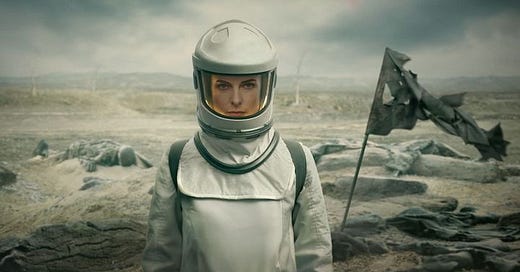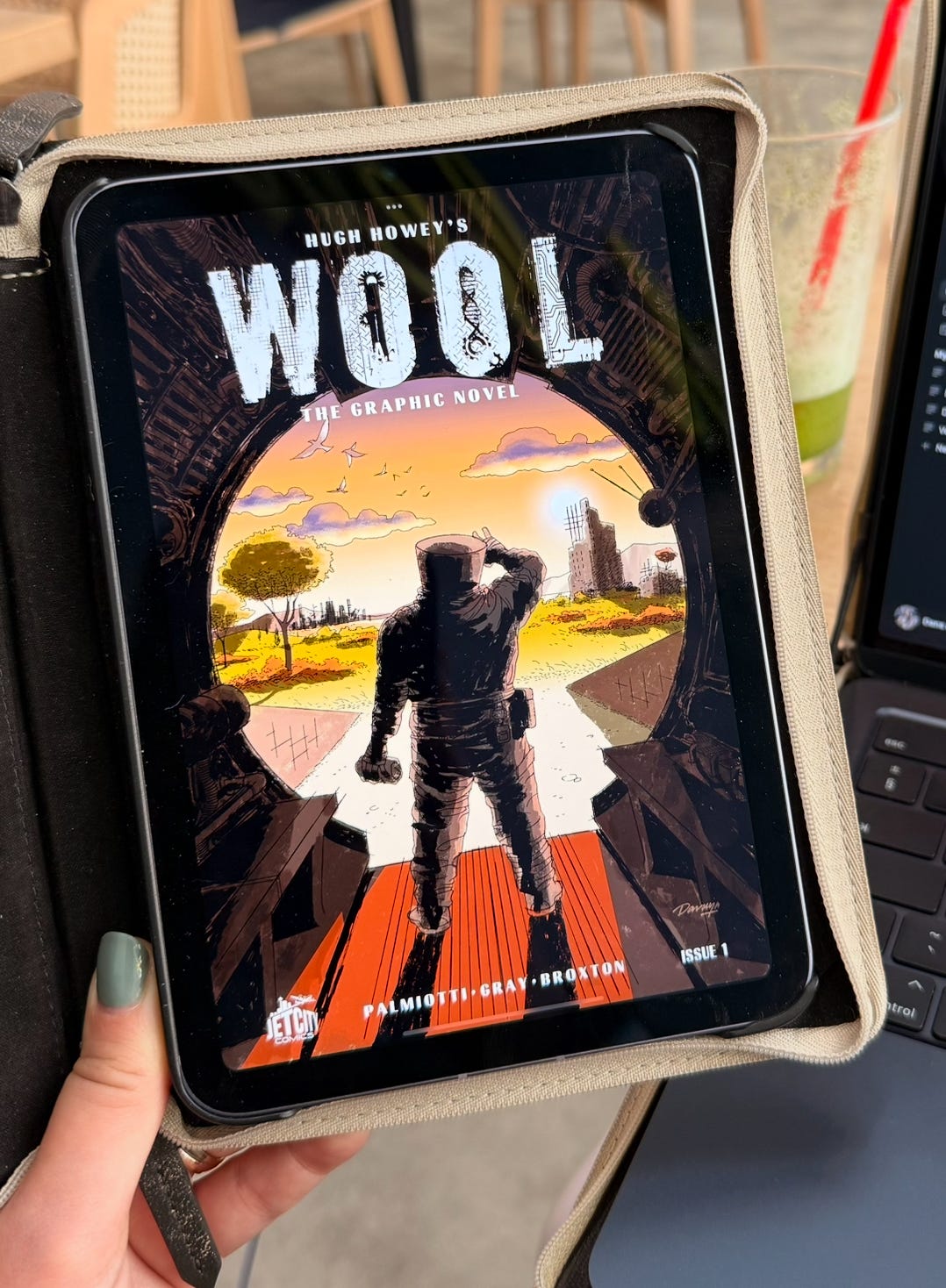Silo, The Dystopian Novel that Brought Me Joy and What To Read Before Bed
While searching for the perfect balance between relaxation and pleasurable reading, I had promised to stay off dystopias for a while. And then I came across Wool, the book that Silo is based on.
Hello and happy Sunday!
Remember when I said I wouldn’t read any more post-apocalyptic novels and I would stick to positive, soapy fantasy? Yeah, that didn’t last long, because this week I finished the first book in the Silo series, Wool by Hugh Howey. I was aware of the TV show Silo, but didn’t realise it was based on a book.
I find the springtime challenging for content consumers such as myself: most TV shows I watch are ending, not much is going on film-wise either, and I am in between book releases I am expecting: Stephen King is launching a new book at the end of May.
This is how I ended up asking people for recommendations and Silo came up twice. I had come across its poster, shown above, and I steered clear, imagining the worst. But after being recommended the show twice, I thought I would watch an episode and see what it’s about.
Needless to say, I was hooked. All week, I’ve watched a couple of episodes a night, and in between, I started reading the book the show is based on. I realised the two seasons that are out are unlikely to resolve the narrative, so I had to see what the source material was like and how the story concludes. I finished the book; I have yet to watch the show's last five episodes, but I can say this: this book (and its TV show) brought me joy in a way I didn’t think another dystopian story would! Yes, it’s bleak, yes, humanity is doomed, and a handful of people survived. Still, the intrigue and psychological accuracy of the underground society rang so accurate and relevant that I can’t not appreciate it!
Without giving too much away, here’s what the book is about.
Wool, the dystopian novel that brought me joy
Hugh Howey’s Wool was originally self-published as a short story in 2011. It quickly expanded into a phenomenon, earning bestseller status and spawning both sequels and a major TV adaptation. The first instalment is called Wool Omnibus, because it consists of five separate novellas, which the assumption is the author never intended to write like this.
Hugh Howey’s journey with Wool began when he chose to self-publish the story as a $0.99 e-book novella on Kindle Direct Publishing in July 2011, after turning down a small press contract. Initially, he had no plans to expand the story, but when sales quickly outpaced his earlier works, he shifted his focus to writing more instalments. The rapid release of four additional parts propelled Wool to the top of Amazon’s bestseller lists, and by early 2012, the omnibus edition spent two weeks on The New York Times e-book fiction bestseller list. At the peak of its success, Howey was selling 20,000–30,000 copies a month and earning $150,000 monthly, allowing him to quit his day job. He changed the self-publishing landscape for authors since then.
Howey’s writing is understated but effective, emphasising atmosphere and suspense rather than ornate prose, though I found his sentence structuring lyrical in places without being overdone; the overall effect is one of relentless intrigue.
Set in a future where the surface of Earth is toxic, humanity survives in a massive, 144-story underground silo. The rules are strict: expressing a desire to go outside is a death sentence, with offenders sent out to “clean” the silo’s external lenses-never to return. The Silo’s population is kept in check by legalism, rationing, and a heavily manipulated reality, where even the view of the outside world is filtered.
I will admit that the title of the novel feels unsuitable to me. However, it links to my favourite passage in the whole book. Mayoresse Jahns has been ruling over the silo for more than forty years.
After much deliberation, Mayor Jahns selected a pair of needles. She always chose carefully, for proper gauge was critical. Too small a needle, and the knitting would prove difficult, the resulting sweater too tight and constricting. Too large a needle, on the other hand, would create a garment full of large holes. The knitting would remain loose. One would be able to see straight through it. Her choice made, the wooden bones removed from their leather wrist, Jahns reached for the large ball of cotton yarn. It was hard to believe, weighing that knot of twisted fibers, that her hands could make of it something ordered, something useful. She fished for the end of the yarn, dwelling on how things came to be. Right now, her sweater was little more than a tangle and a thought. Going back, it had once been bright fibers of cotton blooming in the dirt farms, pulled, cleaned, and twisted into long strands. Even further, and the very substance of the cotton plant itself could be traced to those souls who had been laid to rest in its soil, feeding the roots with their own leather while the air above baked under the full glory of powerful grow lights.
With practiced care, she looped the end of the yarn around the point of one needle and crafted a triangle-shaped web with her fingers. The tip of the needle danced through this triangle, casting the yarn on. This was her favorite part, casting on. She liked beginnings. The first row. Out of nothing comes something. Since her hands knew what to do, she was free to glance up and watch a gust of morning wind chase pockets of dust down the slope of the hill. The clouds were low and ominous today. They loomed like worried parents over these smaller darting eddies of windswept soil, which tumbled like laughing children, twirling and spilling, following the dips and valleys as they flowed toward a great crease where two hills collided to become one.
Wool, Hugh Howey, page 46
We are introduced to Juliette not from the first page, but only after the silo’s original sheriff leaves the scene; Juliette is a resourceful mechanic from the silo’s lower depths, who is brough into the spotlight by being thrust into the role of sheriff. Her curiosity and determination drive her to challenge the silo’s oppressive leadership and uncover the secrets that keep its inhabitants in the dark.
Juliette’s character is a standout: practical, logical, and fiercely independent. Her background as an engineer grounds her in reality, making her the ideal protagonist to question the status quo. The novel explores themes of control, distorted reality, and the lure of forbidden knowledge. Howey’s inspiration, drawn from the filtered nature of modern media, is evident in the way information is weaponised within the silo. The story balances bleakness with moments of hope, as characters strive for truth and connection despite overwhelming odds.
Wool stands out for its compelling premise, strong protagonist, and exploration of power and truth. While some critics point to minor flaws in pacing or technical plausibility, the novel’s emotional resonance and immersive setting make it a must-read for dystopian and classic science fiction fans.
Recommended for:
Fans of dystopian fiction, post-apocalyptic worlds, and anyone who appreciates a tightly plotted, character-driven mystery with philosophical undertones. 4.5/5 stars.
I just found out that there is a graphic novel for the series, and I can’t wait to start reading it, as soon as I finish watching the TV show. It looks so promising!
As for the TV show, I was in awe from the get-go. I haven’t seen Tim Robbins in something worth watching since The Shawshank Redemption, and I find his quiet confidence soothing. He has aged gracefully, and his acting is a privilege to watch. Rebecca Ferguson is Juliette, and I couldn’t have pictured anyone else doing a better job.
The Q&A at the end with the author was a delight as well. Here’s a YouTube interview to give you a taste:
Books that won’t stress us out before bed
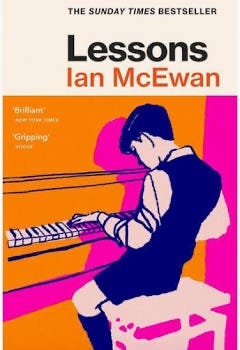
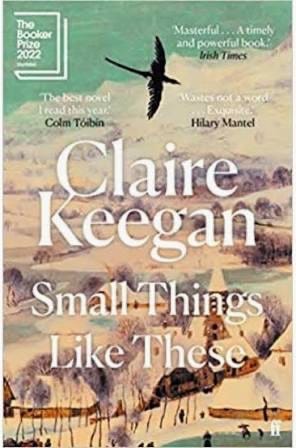

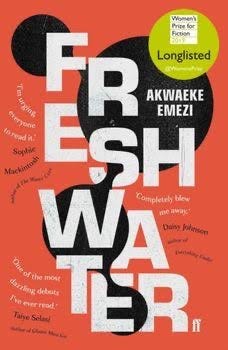
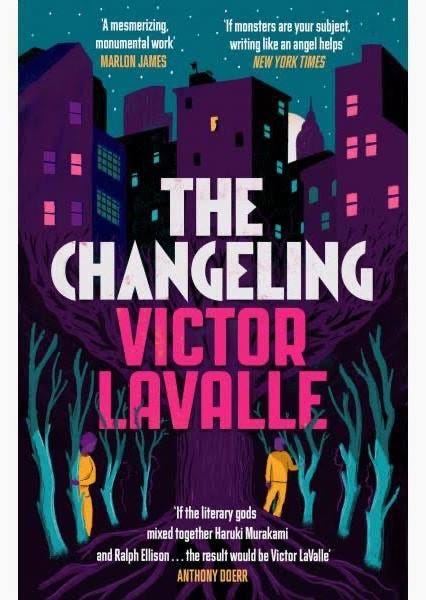
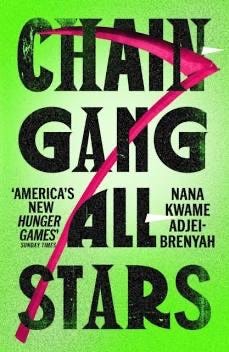
It’s probably not hard to guess why I've shunned dystopias and post-apocalyptic stories: I get a lot of doom and gloom from reality and the world we live in.
I am not the only one looking for nontoxic positivity where I can get it. I came across an article on Vox (paywalled link) called “I want a book that won’t stress me out before bed.” I thought that was a very accurate way of putting my reading moods and cravings.
Don’t worry, I pay subscriptions so you don’t have to, so here are some of the titles recommended in the article:
For Hopeful, Grounded Fiction
Lessons, Ian McEwan
Follows a man named Roland through personal and political tragedies (childhood abuse, spousal abandonment, historical upheavals), yet he builds a meaningful life full of love and warmth. The novel is about surviving catastrophe and finding hope.
For Gentle, Short Bedtime Reading
Small Things Like These, Claire Keegan
A brief, lovely novel about Bill Furlong, a coal merchant in 1985 Ireland, who discovers a dark secret at a Magdalene laundry. The book is described as gentle, understated, and warm-balm for anxious times and perfect for reading in small increments before bed.
For a Family Book Club (Black Authors, Sci-Fi/Fantasy/Magical Realism)
The Broken Earth Trilogy (starting with The Fifth Season), N.K. Jemisin
Jemisin won three Hugo Awards for this trilogy, which tells the story of a mother and daughter waging war on a furious, sentient planet. It’s described as a “titanic achievement” that will keep readers busy with its three volumes.
Freshwater, Akwaeke Emezi
Emezi’s debut uses Igbo cosmology to explore gender dysphoria and mental health, telling the story of a young girl who is an ogbanje (spirit child) and her complex relationship with her mother. The prose is described as “precise, ferocious, electric”.
The Changeling, Victor LaValle
A blend of fantasy, horror, and social commentary, this novel follows a rare books dealer whose wife claims their baby isn’t really theirs. It’s praised for its evocative portrayal of parenthood, spine-tingling horror, and love of books.
Chain-Gang All-Stars, Nana Kwame Adjei-Brenyah
This debut novel imagines a near-future America where prisoners fight to the death in televised gladiatorial games. The article calls it “propulsive” and “scathing,” exploring complicity, victimisation, and the possibility of redemption.

